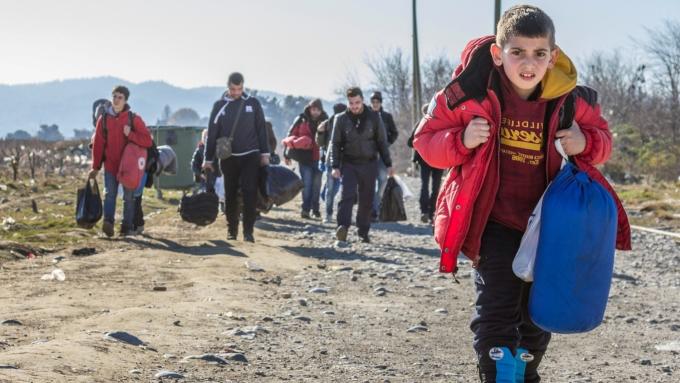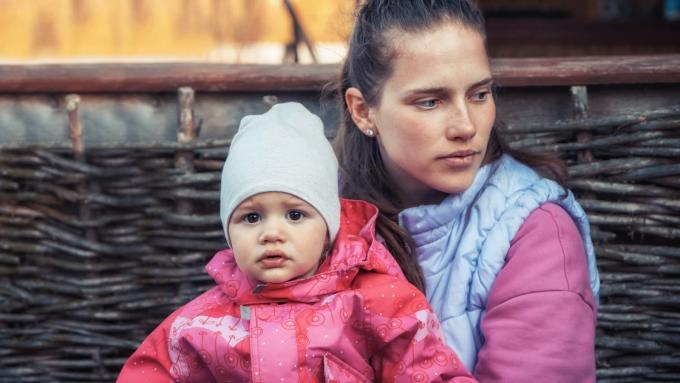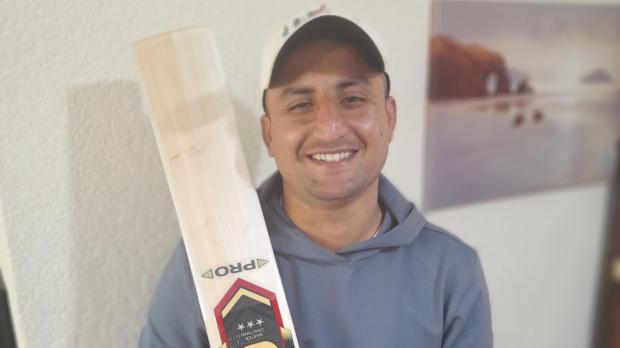During Refugee Week 2023, we've published our report, A Warm Welcome, which outlines a blueprint for supporting displaced children seeking protection in the UK.
The UK has a long history of providing asylum to people fleeing war, discrimination and violence, and was one of the original signatories to the 1951 Refugee Convention. However, recent developments risk undermining decades of learning and progress. The UK has created visa schemes in response to specific crises outside the general protection framework, but it lacks a national strategy to address forced displacement.
All children who enter the UK, regardless of their country of origin, should be given the same support to feel safe and thrive. This is essential to ensure the UK carries out its obligations under the UN Convention of the Rights of the Child (UNCRC), which outlines that children seeking refugee status must receive appropriate protection and humanitarian assistance.
Crucially, child protection must be the key driver for any strategy developed – children seeking asylum should not be defined solely by their immigration status. The duty to provide care has to remain with local authorities rather than the Home Office, which has no expertise in providing housing and care to separated and vulnerable children.
All children, regardless of their nationality or route to entry into the UK, should have access to the support they need.
I thought life would be simple and everyone would be smiling and nice to me; instead, the welcome was harsh.
A separated child supported by Barnardo’s
Our asylum system is broken
Many people seeking asylum are children and young people; of the 75,181 people applying for asylum in the last year, children (under the age of 18) accounted for almost a fifth (18%).
Some are travelling with their families; others have been separated from their loved ones. Nearly one in three people who came to the UK seeking safety from Ukraine in the last year through the community sponsorship scheme were children.
At a time when the public and political debate about our asylum system has become so bitter and polarised, we need to shift the focus to solutions that will make the system work for these vulnerable children, helping to put their trauma behind them and integrate into their new country.
I was placed in a police station straight away here in the UK, I felt like I did something wrong, I don’t want other children to feel that way. I did not know that coming over to the UK in a boat was illegal, I just wanted a safe haven.
A separated child supported by Barnardo’s ICTG service.
What needs to happen?
Our report - supported by Action for Children, British Future, Coram Legal Centre, ECPAT UK, NSPCC, Refugee Council, Save the Children, The Children's Society, and others - calls for the following five key recommendations to be implemented to begin developing a welcoming movement for children:
- Develop a strategic plan for welcoming all displaced children: A clear plan underpinned by sufficient funding for local authorities will enable us to offer displaced children the best possible start once they are here.
- Roll out local welcoming hubs for displaced families: These hubs, which could offer social activities including befriending projects and conversation clubs, would work with local employers, colleges and schools and other services to support the integration of displaced people.
- Allow all children arriving in the UK means of obtaining safety with their families: Increase and strengthen safe and regular routes for children and families to seek safe access to the UK and ensure the ability to apply for asylum and international protection regardless of route to entry.
- Increase specialist foster care for separated children in the UK: A review of the barriers to the provision of specialist foster care for separated children seeking asylum and steps to increase the provision, training and funding for specialist foster carers for children who need them.
- Assign all separated children arriving in the UK a guardian: A trained adult by the side of each separated child to help them navigate the asylum system, support all their needs and advocate for their interests.

Children seeking asylum
Under international law, the UK has a duty to offer asylum to people who flee their own countries because of a well-founded fear of persecution. Whether they remain in the UK or not, we believe we should support children seeking asylum and their families while they are going through the asylum process.

Government's new asylum bill threatens to lock up thousands of refugee children who come to the UK alone
An analysis by Barnardo’s and the Refugee Council reveals that the UK Government's new asylum bill would allow thousands of refugee children who are separated from their parents to be locked up, unless MPs persuade ministers to exclude them from the legislation.

Supporting refugees from Ukraine
Our support to families from Ukraine builds on our significant experience of supporting refugees arriving from Afghanistan and Syria through a range of services. This support includes providing a range of holistic services, such as a bespoke helpline, therapeutic support with a qualified psychotherapist, and help through our Family Support Services.


